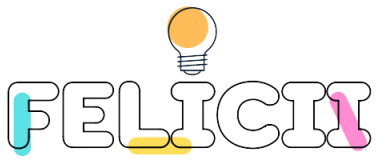Expanding Your Horizons: Exploring Web Research Techniques
Expanding Your Horizons: Exploring Web Research Techniques

In today’s digital age, the internet serves as an expansive reservoir of information, waiting to be tapped into for various purposes, from academic research to business intelligence. However, navigating this vast sea of data requires more than just basic search skills; it demands proficiency in web research techniques that enable efficient discovery and evaluation of online resources. Whether you’re a student, a professional, or simply a curious individual seeking to broaden your horizons, mastering these techniques can significantly enhance your ability to find accurate, relevant, and reliable information online.
Introduction to Web Research
Importance of Web Research
Web research forms the backbone of modern-day information gathering, facilitating knowledge acquisition and decision-making processes across diverse domains.
Why it Matters for Individuals and Businesses
For individuals, web research provides access to a wealth of educational resources, news articles, and entertainment content, empowering continuous learning and personal development. Businesses rely on web research to analyze market trends, assess competitors, and gather consumer insights, driving strategic planning and innovation.
Understanding Search Engines
How Search Engines Work
Search engines employ complex algorithms to index and rank web pages based on relevance and authority, ensuring users receive the most pertinent results for their queries.
Popular Search Engines and Their Features
From Google to Bing to DuckDuckGo, each search engine offers unique features such as advanced search operators, filters, and personalized recommendations, catering to diverse user preferences.
Effective Search Queries
Crafting Precise Search Queries
Mastering the art of crafting precise search queries is essential for obtaining accurate and targeted results, minimizing information overload and irrelevant hits.
Using Advanced Search Operators
Advanced search operators such as quotation marks, site: and filetype: enable users to refine their searches and narrow down results according to specific criteria.
Utilizing Online Databases and Archives
Accessing Academic Databases
Academic databases like JSTOR, PubMed, and IEEE Xplore host a vast repository of scholarly articles, research papers, and journals, serving as invaluable resources for students and researchers alike.
Exploring Digital Archives
Digital archives preserve historical documents, photographs, and multimedia materials, offering insights into past events and cultural heritage for historians, journalists, and genealogists.
Social Media as a Research Tool
Leveraging Social Media Platforms for Research
Social media platforms such as Twitter, Facebook, and LinkedIn serve as virtual goldmines of real-time data, opinions, and trends, enabling researchers to gauge public sentiment and conduct social network analysis.
Finding Credible Information amidst Social Media Noise
Amidst the plethora of user-generated content and misinformation circulating on social media, distinguishing credible sources from unreliable ones requires critical thinking skills and fact-checking methodologies.
Exploring Open Access Resources
Accessing Free Scholarly Articles and Publications
Open access repositories like arXiv, DOAJ, and PLOS offer free access to peer-reviewed articles and scientific literature, fostering knowledge dissemination and democratizing access to information.
Understanding the Limitations and Benefits of Open Access Resources
While open access resources promote transparency and inclusivity in scholarly communication, they may also face challenges such as funding constraints and quality control issues.
Data Mining Techniques
Extracting Insights from Large Datasets
Data mining techniques such as clustering, classification, and association rule mining enable researchers to extract meaningful patterns and correlations from vast datasets, driving data-driven decision-making.
Tools and Methods for Data Mining
From Python libraries like Pandas and Scikit-learn to specialized software such as RapidMiner and KNIME, a plethora of tools and methods are available for conducting data mining tasks efficiently.
Evaluating Online Sources
Assessing Credibility and Reliability of Websites
Evaluating the credibility and reliability of online sources requires scrutiny of factors such as author expertise, publication date, and editorial oversight, mitigating the risk of misinformation and bias.
Spotting Misinformation and Fake News
In an era of information overload and viral content, identifying misinformation and fake news necessitates media literacy skills and critical analysis of sources, preventing the spread of false information.
Citation and Reference Management
Importance of Proper Citation
Proper citation practices acknowledge the intellectual contributions of others, uphold academic integrity, and facilitate reproducibility and transparency in research.
Tools for Managing References Effectively
Reference management software such as Zotero, Mendeley, and EndNote streamline the citation process, allowing researchers to organize, annotate, and cite references effortlessly.
Collaborative Research Tools
Platforms for Collaborative Research Projects
Collaborative research tools like Google Docs, GitHub, and Slack foster teamwork and communication among researchers, enabling seamless collaboration on projects across geographical boundaries.
Enhancing Productivity through Teamwork
By leveraging the collective expertise and diverse perspectives of team members, collaborative research teams can achieve greater productivity and innovation, accelerating the pace of discovery.
Web Scraping for Data Collection
Introduction to Web Scraping
Web scraping involves extracting data from websites programmatically, enabling researchers to collect and analyze information at scale for various purposes such as market research and sentiment analysis.
Ethical Considerations and Legal Implications
While web scraping offers powerful capabilities for data collection, researchers must adhere to ethical guidelines and legal regulations to ensure respect for intellectual property rights and user privacy.
Staying Updated with RSS Feeds and News Aggregators
Setting Up RSS Feeds for Tailored News Updates
RSS feeds allow users to subscribe to their favorite websites and receive automated updates whenever new content is published, facilitating personalized news consumption and information tracking.
Using News Aggregators to Streamline Information Consumption
News aggregators like Feedly, Flipboard, and Pocket aggregate content from multiple sources into a single platform, enabling users to stay informed and organized amidst the deluge of online information.
Techniques for Cross-Referencing Information
Verifying Facts and Claims through Cross-Referencing
Cross-referencing involves validating information by corroborating it with multiple independent sources, reducing the risk of relying on false or biased information.
Avoiding Confirmation Bias in Research
Awareness of confirmation bias—the tendency to interpret information in a way that confirms one’s pre-existing beliefs—is crucial for maintaining objectivity and rigor in research endeavors.
Tips for Efficient Information Organization
Structuring Research Findings for Easy Retrieval
Organizing research findings into coherent structures such as outlines, mind maps, and annotated bibliographies facilitates information retrieval and synthesis, enhancing the efficiency of the research process.
Tools and Strategies for Organizing Information
From note-taking apps like Evernote and Notion to project management tools like Trello and Asana, a plethora of tools and strategies are available for organizing and managing information effectively.
Conclusion
In conclusion, mastering web research techniques is indispensable for individuals and organizations seeking to navigate the vast landscape of online information effectively. By understanding how search engines work, leveraging diverse research tools and methodologies, and exercising critical thinking skills, researchers can expand their horizons and unlock new insights with confidence and clarity.









